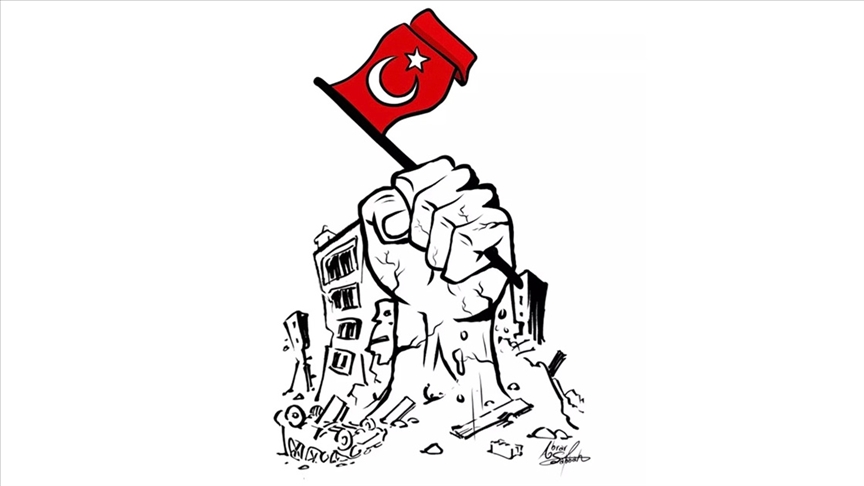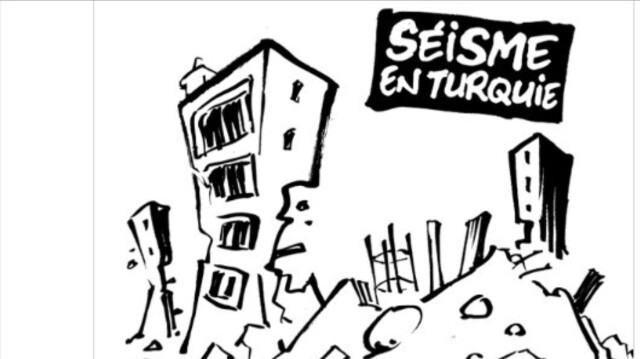Muslims are taught to respect and protect everything in existence, knowing that “The seven heavens and the earth, and whoever is therein, glorify Him. There is nothing that does not glorify Him with His praise.” (Isra 17:44) Therefore, no Muslim should knowingly cause harm to the environment nor mistreat nature in any way.
Required is awareness of the needs of one’s environment. A person with such awareness will be ever mindful of his dealings in the environment, and therefore act accordingly. At the very least he will accept creatures of the environment as his friends and aids. As he benefits from these creatures, he will also take care not to disturb the balance of nature. The Qur’ân’s declarations that waste is a sin, and extravagance is the brother of the Satan (Araf 7:31, Isra 17:26-27) and the Prophet’s advice not to waste water while performing ablution, even if it was a flowing river (Ibn Majah) is a pertinent warning which arouses environmental awareness within Muslims.
Quddus, one of the attributes of Allah means sacred and pure.
As a manifestation of His name, the ecology created by Allah continuously purifies the constant pollution of nature on earth. The bodies of thousands of animals that die every season, and the dried remains of plantation, are subjected to chemical transformation and deposited into the soil. Additionally, the earth is virtually swept by the wind, and purified by rainfall. At this point, every Muslim should act with the understanding that the duty of keeping himself and his environment clean is a reflection of the name Quddus.
As a manifestation of His name, the ecology created by Allah continuously purifies the constant pollution of nature on earth. The bodies of thousands of animals that die every season, and the dried remains of plantation, are subjected to chemical transformation and deposited into the soil. Additionally, the earth is virtually swept by the wind, and purified by rainfall. At this point, every Muslim should act with the understanding that the duty of keeping himself and his environment clean is a reflection of the name Quddus.
The Qur’ân declares that God charged humans with the duty of improving the earth. In one of the verses, it states: “It is He Who hath produced you from the earth and settled you therein”(Hud 11:61) On the basis of this verse, Islamic scholars relate that constructing houses, establishing drainage systems and planting trees is an obligatory duty of society. Whether as a mundane or a religious duty, it is only natural that humans construct on earth.
The Prophet (pbuh) was an example to all Muslims in this regard. The Prophet, who was familiar with this Divine Command, participated in the construction of Medina, and made great efforts to develop the city in which he lived into a well constructed area. In addition to Mecca, the Prophet also forbade the cutting down of trees and hunting in the regions of Medina and Taif. Adi bin Zayd reported that the Prophet declared the 1000 sq m distance around the whole of Mecca a conservation area, and forbade the cutting down of trees and breaking branches within these boundaries (Abu Dawood).
At Zuraib-Tawil, the Banu Harith’s grazing pasture close to Medina where the Prophet camped on return from the Dhu-Qard expedition, they described the area as the place where animals grazed and women could roam freely. The Prophet said, “Whoever cuts down a tree in this area must plant another in its place.” When the people of Taif sent a delegation to Medina to become Muslims, in the agreement the Prophet had prepared, he added a clause declaring that the valleys of the Taif region were under conservation, that destroying the plantation and hunting animals in the region was forbidden and that those who disobeyed this ban would be punished.
During the Caliphate of ‘Umar, basing his decision on this written decree, Sa’ad b. Abi Waqqas punished a person who disobeyed the ban (Abu Dawud). Again, the Prophet prohibited the cutting of cedar trees and desert plantation which travelers and animals used for shade, and cursed a anyone who cut these trees (Abu Dawud).
The Prophet (pbuh) gave advice and orders regarding keeping the city clean, and was very particular about the protection of both animals and plantation. The Prophet then gave orders that the mosques should be cleaned and smell of scent (Tirmidhi, Jum’ah 64), that the forecourts and yards be cleaned (Tirmidhi, Adab 41), that no one should urinate in still waters (Bukhari, Wudu 68) and that no waste should be thrown near sources of drinking water. We should also remember the hadtihs which inform us of the man who was granted Paradise for drawing water from a well with his shoe to feed to a dog whose tongue was hanging with thirst (Bukhari, Adab 27) and an old woman who was damned to Hell for imprisoning a cat in her house and leaving it to starve.
These examples prove that the Prophet was a most excellent example to others in the manner in which he would protect the environment, keeping it clean just as he himself would like to be in all matters.
In addition, the Prophet (pbuh) also encouraged the planting of trees: “Even if you fear that the Last Day has arrived, plant the sapling you hold in your hand” (Bukhari); “Whoever plants a tree will be rewarded the amount of its produce by God” (Ahmed b . Hanbal, Musnad); “If someone revives an empty infertile piece of land, he will be rewarded by God for this action. And when any living creature benefits from this land, it will be recorded as charity for the one who revived the land” (Munawi). If a Muslim plants a tree, the produce eaten from that tree is most certainly charity for him. And the produce stolen from that tree is also recorded for him as charity. Whatever is eaten of the produce by wild animals is also recorded as charity, the produce eaten by birds is charity, all the produce eaten from that tree is charity for the one who planted it”(Bukhari, Adab). These hadith are a clear indication of the encouragement to bring environmental concerns to the attention of others.
The Companions, who implemented every action of the Prophet, followed the Prophet’s example and guided us in regard to environmental awareness. For example, Abu Bakr warned the army leaving on an expedition: “Do not uproot or burn palm trees, or cut down fruit-bearing trees. Do not slaughter a cattle or sheep except for the purpose of food…” (Ibnu’l-Asir)
When our master ‘Umar sent Abu Musa al-Ash’ari to Basra as governor, he ordered him to pay particular importance to the cleanliness of the streets (Darimi, Sunan).
One day, as Abu Darda, one of the reputed companions, was planting trees in Damascus, a man who was passing by thought this was strange and asked:
“O Abu Darda, you are a Companion of the Prophet, why are you planting trees?”
Abu Darda replied: “I heard the Prophet say, ‘If a person plants a tree, the fruits eaten by any human or any of God’s creatures will be recorded as charity for the one who planted it.” (Tajrid-i Sarih)
On another occasion, our master ‘Uthman was planting a tree late at night when a passer-by called out, “O Caliph! Are you planting trees at this time?” He replied, “When you pass, it is better for you to see me doing good deed like this, than to see me like the rebels.”
To embed the Companions’ awareness of the environment into the minds of Muslims today we must continue to live in harmony with nature, and constantly remember the universe and its creatures that Allah provided as an entrustment.
Elif Kapici
2010 - June/July, Issue: 023, Page: 012
2010 - June/July, Issue: 023, Page: 012









No comments:
Post a Comment